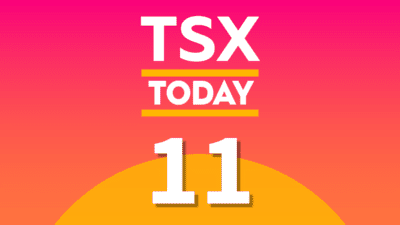Indigo Books & Music (TSX:IDG) can’t seem to catch a break of late. The book retailer that survived the initial onslaught from Amazon.com is now in a world of pain with its shares now down over 66% from its high.
It was never supposed to be this way. What happened?
The company recently pulled the curtain on some pretty underwhelming Q1 2020 results, sending the stock down 15% on Wednesday, a forgettable day for the bulls.
Indigo reported an adjusted loss of $0.69 per share, exceeding the loss expectations of $0.46, making this the fourth straight time that Indigo has fallen short of analyst expectations.
The larger-than-expected net loss came in at $19.1 million and was due to falling sales and higher restructuring costs amidst the company’s initiatives to cut down on costs.
Revenues also fell short of expectations at $192.6 million, down nearly $13 million year over year, and missing the consensus estimate of $237.1 million.
The drastic fall in sales was thanks in part to a reduction in promos to increase profitability numbers. Unfortunately, it appears as though Indigo had cut a bit too deep this time around as the company missed on both the top and bottom line by a country mile, although Q4 2019 was a far bigger strikeout.
When will the pain stop for the struggling book, gift, and toy retailer?
After Indigo’s recent drop, the stock looks technically broken and could stand to injure investors with the guts to try to catch the falling knife. The next stop could be $5 and change, especially if the Canadian economy remains sluggish.
Physical books are a want, not a need, and with readily-available eBooks that can be borrowed from your local library through an app like Libby, many consumers are holding off on buying the latest bestseller from their local Indigo or Chapters.
Gifts and toys provide Indigo with a more recession-resilient stream of cash flows, especially if the company were to double-down on the kids and babies markets, as fellow Fool Will Ashworth pointed out in his prior piece.
Ambrose O’Callaghan seems to think that Indigo can give Amazon a taste of its own medicine with the growth potential behind its e-commerce platform.
While the platform does show tremendous promise, brick-and-mortar will be where Indigo’s real strength will lie moving forward, and as renovations draw in more store traffic, I can’t say that I’m a believer that this is the final chapter for Indigo.
The company could stage a massive comeback, but in order to reap the rewards of such a bounce, investors are going to need a high pain tolerance because Indigo may not have hit bottom yet.
The stock itself is absurdly cheap, though, at 0.19 times sales and 0.53 times book. We’re getting into deep-value territory here, and although I wouldn’t bet the farm on the name after another big miss, it can’t hurt to nibble on the name on the way down.







